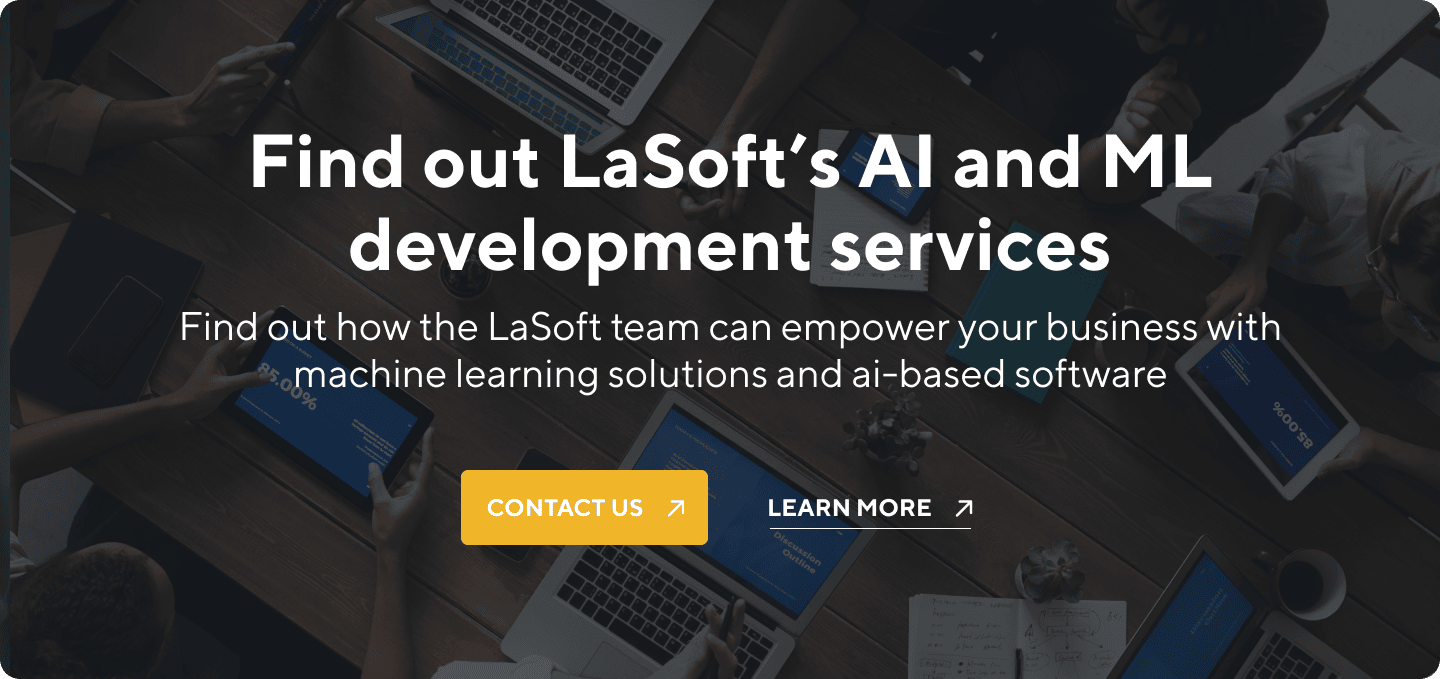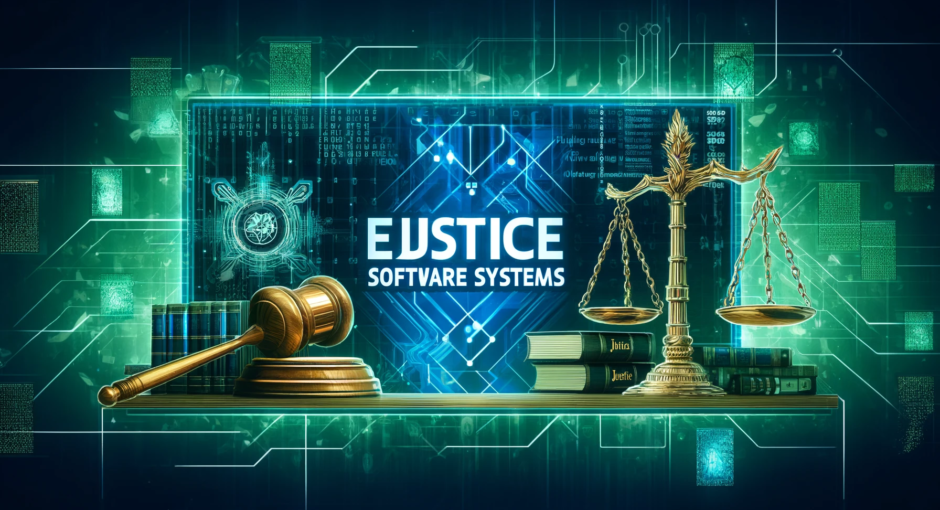This interview seeks to clarify the myths and realities surrounding AI, offering a balanced perspective to readers keen on understanding the potential and pitfalls of artificial intelligence in modern society.

In this conversation, we delve into one of the most captivating and contentious topics in technology today: Artificial Intelligence (AI). The concept evokes a broad spectrum of reactions, from excitement about futuristic innovations to fear of an uncertain, machine-dominated future. To unpack these complex feelings and the reality of AI, we sat down with Vasyl Varkholyak, an esteemed expert in software development technologies, CTO at LaSoft, for an enlightening conversation.
— Welcome, Vasyl. It’s a pleasure to have you in our editorial office. With AI often portrayed in everything from a savior of humanity to a harbinger of dystopia, could you help our readers understand what AI truly entails?
— Thank you for having me. Absolutely, the portrayal of AI varies widely, but at its core, AI involves creating machines or software capable of tasks that normally require human intelligence. This spans a wide range from simple tasks performed by algorithms on smartphones to complex systems capable of learning and adapting over time.
— Given the wide range of applications and implications, the central question for many of our readers is: Should we fear AI?
— It’s a nuanced question. AI, like any powerful tool, holds potential for immense benefits as well as risks. It’s transforming how we solve complex problems, improve efficiency, and could even save lives in fields like medicine. However, concerns around privacy, security, job displacement, and the ethics of AI decisions are valid and warrant careful consideration.
— So, the dystopian visions of AI taking over the world are more fiction than fact?
— Correct. While AI is advancing rapidly, the scenario of superintelligent AI becoming uncontrollable remains speculative. The real challenge lies in ensuring AI is developed and used transparently, responsibly, and ethically. It’s about preparing for the social and economic impacts of automation rather than fearing a machine uprising.
— With those challenges in mind, what steps should be taken to mitigate the risks associated with AI?
— Key measures include establishing ethical guidelines and regulatory frameworks for AI, involving a diverse group of stakeholders in the development and governance of AI technologies, and educating the public to demystify AI. It’s crucial that we understand and engage with AI, ensuring it’s developed in a way that benefits all of society.
— That sounds like a hopeful perspective on AI. What’s your vision for the future of AI?
— My vision is one where AI enhances human capabilities and improves the quality of life worldwide. By addressing the ethical and societal challenges head-on, we can leverage AI as a force for good. It’s about steering the development of AI in a direction that aligns with our values and collective well-being.
— Moving deeper into the topic, AI software development is often seen as a blend of science and art. Could you elaborate on the intricacies involved in creating AI systems?
— Absolutely. AI software development is indeed a complex field that combines mathematical rigor, data science, programming, and domain expertise. One of the key intricacies is the design and training of algorithms to not just follow instructions, but to learn from data. This requires a deep understanding of both the theoretical aspects of machine learning models and practical considerations like data quality, computational resources, and the ethical use of data.
— How significant is the role of ethics in AI software development, especially considering concerns around bias and fairness?
— Ethics plays a crucial role. As developers, we must ensure that AI systems are fair, transparent, and accountable. This involves actively working to identify and mitigate biases in both the data and the algorithms themselves. Developing ethical AI also means engaging with a wide range of stakeholders to understand the broader societal implications of the technologies we’re creating.
— In terms of technical challenges, what are some of the hurdles developers face when creating sophisticated AI models?
— One major challenge is dealing with the vast amounts of data required to train sophisticated AI models, which can be both a resource and a privacy issue. Balancing model complexity and interpretability is another hurdle; more complex models may perform better but can be harder to understand and explain. Additionally, ensuring the security of AI systems against attacks and misuse is an ongoing concern.
— Looking to the future, how do you see the development processes of AI software evolving?
— I envision a future where AI development becomes more democratized, with tools and platforms making it accessible to a broader range of people. We’ll likely see more emphasis on collaborative, interdisciplinary teams to tackle the multifaceted challenges of AI. Moreover, as AI technologies mature, we’ll need to innovate continuously not just technically but also ethically, to ensure these advancements benefit society as a whole.
— Finally, what advice would you give to aspiring AI developers looking to navigate the complexities of this field?
— My advice would be to stay curious and continuously learn. The field of AI is rapidly evolving, so a strong foundation in the fundamentals, combined with an ongoing effort to stay updated with the latest research and ethical guidelines, is crucial. Also, don’t be afraid to engage with the community. Collaboration and diverse perspectives are invaluable in navigating the nuances of AI software development.
— Vasyl, thank you for sharing your insights and helping our readers navigate the complex landscape of AI.
— Thank you for the opportunity. It’s vital that we continue these conversations and work together to shape a future where AI serves humanity’s best interests.
Confronting the Shadows: Strategic Responses to the Top Fears Surrounding Artificial Intelligence
| Fear | Description | How to Avoid |
|---|---|---|
| Loss of Jobs | The fear that AI and automation will replace human jobs, leading to widespread unemployment and economic instability. | Promote AI and human collaboration, upskill and reskill the workforce for new job roles created by AI advancements, and implement social safety nets for affected workers. |
| Loss of Privacy | Concerns that AI-enhanced surveillance and data analysis capabilities could lead to an erosion of personal privacy and freedoms. | Enforce strict data protection regulations, use AI ethically with consent and transparency, and develop AI that enhances data security. |
| Bias and Discrimination | The fear that AI systems may inherit or amplify human biases present in their training data, leading to unfair and discriminatory outcomes. | Implement diverse data sets and multidisciplinary teams in AI development, continuously monitor and audit AI systems for bias, and apply ethical AI guidelines. |
| Uncontrollable AI | The concern that AI could evolve beyond human control, making decisions or taking actions that are harmful to humanity. | Establish AI governance and ethical standards, develop AI with built-in limitations and human oversight capabilities, and foster international cooperation on AI safety standards. |
| Dependence on Technology | The worry that increased reliance on AI for critical tasks and decision-making could leave society vulnerable to technological failures or manipulations. | Ensure redundancy and human oversight in critical AI systems, promote digital literacy, and develop robust security and recovery protocols. |
| Misuse of AI | Fears about AI being used for malicious purposes, such as in autonomous weapons, deepfakes, or to spread misinformation. | Enact legislation to prevent malicious use of AI, promote ethical AI development practices, and invest in AI detection and defense technologies. |
| Existential Risk | The ultimate fear that superintelligent AI could pose a threat to human existence itself, either through direct action or by competing with humanity for resources. | Foster a global dialogue on long-term AI impacts, invest in AI safety research, and develop international agreements to regulate the development and use of advanced AI systems. |



